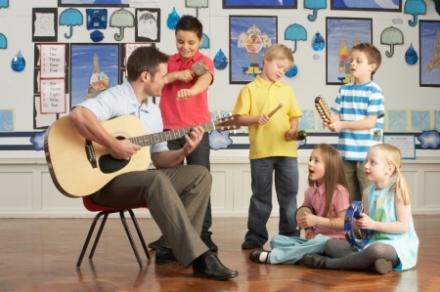Digital Activism: Why does your social justice theme/topic warrant a specifically digital response?
The issue of arts and music funding is particularly pressing in these economic times. In order for public schools to operate, many of them must pass their budgets and make cuts, and the first programs to be cut are often those relating to the arts and music. Their argument is simple: the arts and music do not teach skills that children need to better themselves academically and go to college. I always suspected that really the argument should be that the arts and music do not teach skills that children need to pass standardized tests and meet the goals set by the school district. But I digress.
This alone makes the issue one that should be responded to digitally. By spreading the word via the Internet, people who may have never thought of it as a problem before can begin to learn. Even if someone just sees a snapshot of an article detailing how beneficial music lessons can be for a child, that article can leave a subconscious impression on that person that the arts and music really are useful and important. These baby steps are key to changing how society as a whole reflects on art or music class. It’s easy to forget that art class was good for you in your elementary school days, or perhaps music class did not benefit you that much, but that does not take away from the fact that there are young students out there who can advance from such programs. By creating a widespread, digital response to the issue of disappearing arts programs, we grasp the chance to give more people a positive perception of them.
Further, some of the very skills learned in arts programs are those that would be used in making this digital response. One could argue that the creativity we see in many Internet users today could have been fostered by an early exposure to the arts. Although this is just conjecture, there is evidence that many professional fields do require people to think in a creative, nontraditional way in order to solve problems. There is also concrete evidence that the arts give students skills and ways of thinking beyond the norm. These skills go beyond those of analysis and logic that come from English and math classes. They require a new point of view, which can be provided by exploring self-expression in art and music.
The arts benefit people collectively, too, by creating a sort of social capital, which is when people can bond despite perceived differences. Again, this helps people in the workplace and in life. In regards to why this warrants an online response, the explanation is easy–because the Internet can disconnect people from face-to-face interaction, the social capital the arts foster has a high value.
The issue of funding the arts and music requires a digital response most of all because it is an urgent problem. School programs are be continually cut and devalued, and if this perspective and action isn’t changed soon, they could disappear completely. Politically, this problem is definitely not brought to the forefront by today’s politicians, so instead society must find a way to push it there, and the Internet has always been a great tool for rediscovering lost issues. By placing a higher value on arts programs, we are placing a higher value on the creative mind, and the best way to spread that word is digitally.

